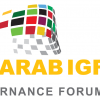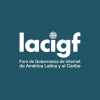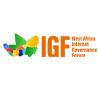Regional IGF Initiatives
Below table shows the current record of the existing regional and sub-regional IGFs.
The Lusophone is a sub-regional IGF recognized in 2023. It creates an open, inclusive and bottom-up platform for all stakeholders from the Portuguese-speaking countries to cooperate on matters related to Internet governance.
AfIGF hosted its first regional, annual IGF meeting in 2012. The main objective of this regional IGF is to provide a platform for an inclusive multilateral, multistakeholder and multilingual discussion on issues pertinent to the Internet in Africa in general and Internet Governance issues in particular.
Arab IGF was established in 2012. It aimes to create a multistakeholder platform to discuss all public policies issues related to Internet governance, especially the issues raised in the "Internet Governance Forum" with the aim of achieving the international governance and management of the Internet and promoting the Internet access, security, stability and development.
The APrIGF was convened in 2010. Its core objective is to raise awareness and encourage discussion of Internet governance issues among relevant stakeholders within the region.
The Caribbean IGF was formed in 2005 with the overall objective to provide a unique space for various concerned stakeholders to come together and discuss issues related to Internet governance in the Caribbean region.
CA-IGF was established inn 2009 year. The major objective is to review the pressing issues related to Internet governance. The Forum brings together all stakeholders of this respective region, to present different experiences specific to this sub-region, as well as to take stock of the progress and map the gaps in the integration process of Internet as an engine for development.
The Central American IGF is a sub-regional IGF initiatives that gathers stakeholders from the region and beyond from different stakeholder groups and disciplines. Its main goal is to foster cooperation across the region and address Internet governance matters of relevance.
CAIGF was organized in 2016. The main purpose of the Forum is the creation of a public platform for the discussion of relevant policies regarding Internet governance in the Central Asian sub-region.
EA-IGF was convened in 2008 with a participation from five countries: Uganda, Burundi, Kenya, Tanzania and Rwanda. The Forum aims at creating a Community of Practice that will build a sustainable foundation for meaningful participation of East African stakeholders in Internet public policy debates at the national, regional and international level.
EuroDIG is created in 2008 by several different stakeholder groups. The main aim of EuroDIG is to promote the engagement of Europeans in multistakeholder dialogue in order to share their expertise and best practice and, where possible, identify common ground. This enables EuroDIG to pull together national perspectives and to apply and shape European values and views regarding the Internet.
The Hong Kong sub-regional IGF was established in 2019. Its core objective is to provide a dialogue platform for the multistakeholder community to address issues related to Internet Governance and facilitate the exchange of opinions.
LACIGF was organized in 2008. The aim of the Forum is to help identify relevant and priority topics for Latin America and the Caribbean to be considered and discussed at the regional and global level. A complementary goal is to promote the regional community's participation in relevant global debates, thus bringing discussions closer to the region.
Sub-regional IGF of Macao was established in 2016 year. Through communication and exchange ideas, Macao IGF obtains different angles of view on Internet governance, in order to foster building and maintaining an eternal network development of this respectful region.
The Mano River Union sub-regional IGF was recognized in 2024. Its main objective is to create an inclusive platform for all stakeholders to discuss Internet governance issues of priority from the region and beyond.
The North African IGF was officially inaugurated in 2017. Its mission is to create a unique platform for the community of this region to discuss issues pertaining to Internet governance.
The Pacific sub-regional IGF was organzied in 2017. The Forum serves as a platform for discussion, exchange and collaboration of Internet Governance issues in the Pacific region. The stated objective is to contribute to improving regulatory and technical capabilities of member countries, specifically with enlightened involvement in the governance of the Internet
Recognized as a regional initiative in 2020, the Quebec IGF (FGI Québec) brings together on an equal footing the different communities that are stakeholders in the Internet, mainly end users, civil society, academic networks, governments, professionals and industry representatives. Since its launch in 2017, the Quebec IGF aims to facilitate a common understanding of how to maximize Internet opportunities and supports those who have decision-making power in the public and private sectors to face the risks and challenges that arise.
SEEDIG was established in 2015 year. It creates a space for an open, inclusive and informal dialogue on Internet governance issues between stakeholders from South Eastern Europe and the neighbouring area.
The Small Island Developing States (SIDS) IGF was established in 2022. It serves as a mechanism for establishing a platform and process in which SIDS can collaborate, cooperate, share experiences and have their voices heard regarding Internet governance issues impacting their communities.
Southeast Asian IGF was established in 2020. Its main goal is to create a platform for all stakeholders to engage in open discussions on Internet governance matters of priority.
SAIGF was convened in 2012 year. It aims for fostering the engagement of the community members in a discussion on Internet governance.
WAIGF was established in 2008 and aims to promote multistakeholder discussion of Internet governance issues in the region. It brings together eight countries: Ghana, Nigeria, Liberia, Sierra Leone, Gambia, Senegal, Burkina Faso, and Togo.










